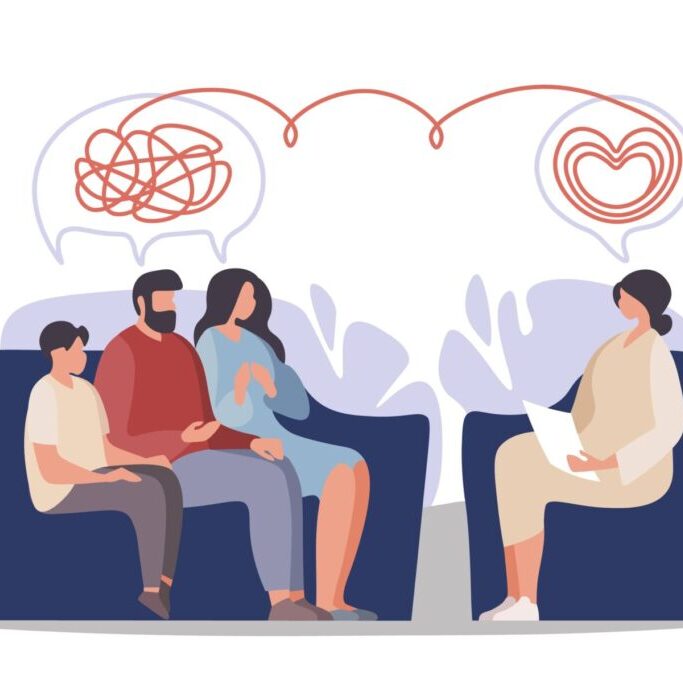Working with Work Anxiety

Work anxiety impacts Chicagoans across the city, but is it avoidable?
Do you think about work even in your free time? Ever have worries about work that keep you up at night? Think of your anxiety as primarily about work?
You could be experiencing work anxiety.
This form of anxiety is a common issue that affects many individuals in the Chicago workforce. It is the feeling of excessive worry, stress, or fear related to work-related situations. The symptoms can be both physical and psychological, and they can negatively impact a person’s mental and physical health. Fortunately, there are many strategies available to help individuals cope with this, including therapy. Let’s consider the causes and symptoms, the benefits of therapy, and other strategies for coping with work anxiety.
Understanding Why
Anxiety related to work can be caused by a variety of factors, including job insecurity, high workload, lack of control, difficult co-workers, or a toxic work environment. Individuals who have a history of anxiety or who are prone to worrying are more likely to experience anxiety related to work. Other factors, such as a traumatic work event or a significant life change, can also trigger this.
The symptoms can vary depending on the individual, but common symptoms include:
- Persistent worry or fear about work-related situations
- Difficulty sleeping or staying asleep
- Muscle tension, headaches, or other physical symptoms
- Difficulty concentrating or focusing
- Feeling irritable or easily frustrated
- Avoiding work-related situations
These symptoms can negatively impact an individual’s performance at work and their overall quality of life.
Benefits of Therapy
Therapy is an effective tool for addressing and treating anxiety as it relates to work. An anxiety therapist can help individuals learn coping strategies, manage stress, and improve overall well-being. There are several types of therapy that can be effective in treating work anxiety, including cognitive-behavioral therapy (CBT), mindfulness-based therapy, and psychodynamic therapy.
Cognitive-behavioral therapy (CBT) is a type of therapy that helps individuals identify and change negative thought patterns and behaviors. It is a goal-oriented therapy that helps individuals develop coping strategies and problem-solving skills. In CBT, individuals learn to challenge negative thoughts and beliefs about work-related situations, which can help reduce feelings of anxiety.
Mindfulness-based therapy is a type of therapy that focuses on increasing awareness of the present moment. It involves learning to observe and accept one’s thoughts and feelings without judgment. Mindfulness-based therapy can help individuals learn to manage stress and reduce feelings of anxiety related to work.
Psychodynamic therapy is a type of therapy that focuses on exploring the root causes of anxiety. It involves exploring past experiences and emotions to gain insight into current thoughts and behaviors. Psychodynamic therapy can help individuals understand the underlying reasons for their work anxiety, which can help them develop effective coping strategies.
How to Choose the Right Therapist for Work Anxiety
Choosing the right therapist is an important step in treating work anxiety. It is essential to find a therapist who specializes in treating anxiety and who has experience working with individuals who have work-related anxiety. Some tips for choosing the right therapist include:
- Ask for recommendations from friends, family, or your doctor.
- Research therapists online and read reviews from previous clients.
- Look for therapists who specialize in anxiety or who have experience working with individuals who have work-related anxiety.
- Carefully consider the fit with the therapist when you meet. Ask them questions about their approach to therapy and their experience treating anxiety in specific relation to work. It is important to feel comfortable with the therapist and to trust their expertise.
Therapy for anxiety isn’t the only strategy to improve anxiety as it relates to work. These strategies can be used in conjunction with therapy or on their own, depending on the individual’s needs and preferences.
1. Exercise
Regular exercise can help reduce feelings of anxiety and stress. Exercise releases endorphins, which are chemicals in the brain that promote feelings of happiness and well-being. Exercise can also improve sleep quality, increase energy levels, and improve overall physical health. People who have work-related anxiety may benefit from incorporating regular exercise into their routine, such as going for a daily walk or attending a fitness class.
2. Meditation
Meditation is a mindfulness-based practice that involves focusing on the present moment and quieting the mind. Meditation can help reduce stress and promote feelings of calmness and relaxation. Individuals who have work-related anxiety may benefit from incorporating daily meditation into their routine, such as practicing meditation for 10-15 minutes before work or during lunch breaks. Even a “mindful minute” regularly throughout the work day can help to recognize anxious thoughts as “just thoughts” and feelings as mere sensations.
3. Self-care
Self-care involves engaging in activities that promote physical and emotional well-being. Self-care activities can include taking a warm bath, reading a book, spending time with loved ones, or engaging in a hobby. Self-care activities can help individuals reduce stress and promote feelings of relaxation and happiness.
4. Time management
Effective time management can help individuals reduce feelings of overwhelm and stress related to work. Individuals can use tools such as a calendar or to-do list to prioritize tasks and manage their time effectively. It is also important for individuals to take breaks throughout the day and to set boundaries between work and personal life to avoid burnout.
5. Social support
Having a support network can help individuals cope with work-related anxiety. This can include talking to a trusted friend or family member about their feelings or joining a support group for individuals who have work-related anxiety. Social support can provide individuals with a sense of belonging and help reduce feelings of isolation and stress.
6. Professional Coaching
Coaches can provide support, guidance, and accountability to help individuals identify the root causes of their anxiety, develop goal-oriented strategies, build resilience, improve communication and interpersonal skills, and provide ongoing support and motivation. Professional coaching can be a valuable complement to other strategies, such as therapy, exercise, and self-care, to help individuals manage their anxiety and improve their overall well-being.
Work anxiety is a common issue that affects many people throughout Lakeview and all of Chicago. The symptoms can be both physical and psychological, and they can negatively impact a person’s mental and physical health. Fortunately, there are many strategies available to help one cope with this, including therapy. Anxiety therapy, in-person or via telehealth, can help one learn coping strategies, manage stress, and improve overall well-being. In addition to therapy, individuals can incorporate other strategies into their routine, such as exercise, meditation, self-care, time management, social support, and professional coaching.
As careers become more demanding, the boundaries between home and work less apparent, a focused approach to address anxiety about work can literally be life changing.
This blog is made for informational and educational purposes only. It is not medical advice.
The information in this blog is not intended to (1) replace a one-on-one relationship with a qualified licensed health care provider, (2) create or establish a provider-patient relationship, or (3) create a duty for us to follow up with you.



